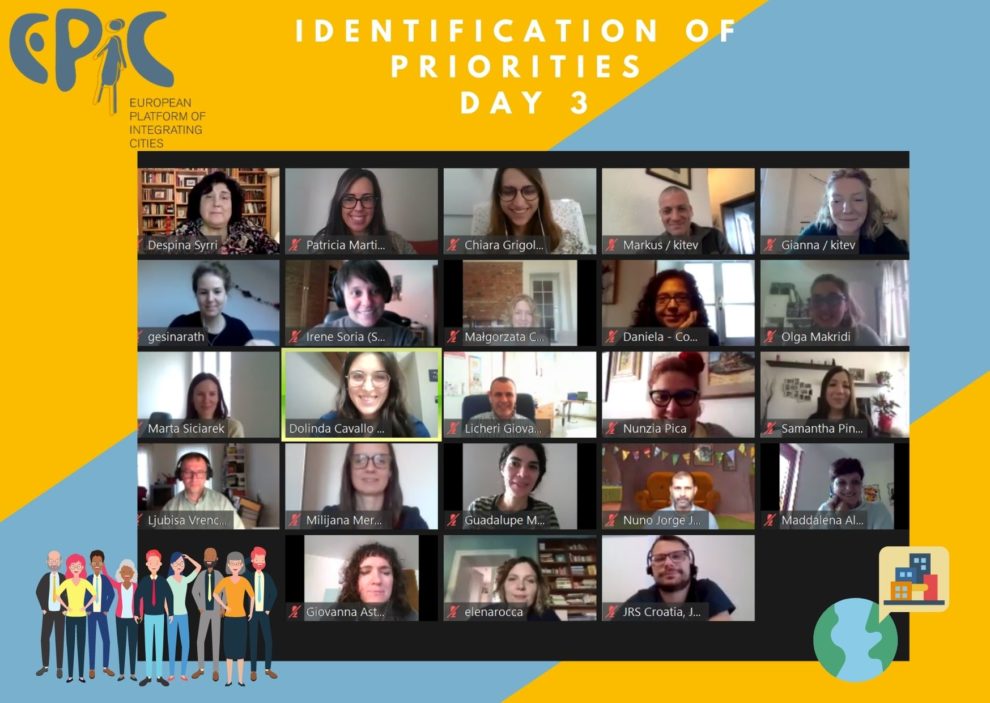
EPIC working groups: Identifying the priority areas for the project interventions
In November the EPIC partners met for a 3-day consortium meeting and working groups to analyse the results obtained so far and delimitate the priority areas for the project based on those evidences.
During the last 8 months, EPIC partners, led by the Bartlett Development Planning Unit of the University College London (partner in charge of the research work package) has conducted surveys and interviews with 700 inhabitants, including migrants and refugees, in 11 cities.
The first day started with a warm welcome and presentation by Ms. Antonella Valmorbida (Secretary-General of ALDA), followed by the presentation of the Research Report Unsettling integration, conducted by Giovanna Astolfo, Harriett Allsopp, Jonah Rudlin and Hanadi Samhan, from The Bartlett Development Planning Unit.
Such research report summarizes the findings from all those surveys and interviews, complemented by some literature review, and reflects on the methodology used, which aims to analyse the multiple dimensions of integration, beyond ‘migranticization’ of the concept.
Based on that extensive baseline analysis, the partners have started to identify the main potential areas of intervention according to their needs, as well as the good practices they can benefit from other partners. By doing this, the consortium is setting the path to pair the cities partners in the project and the peer NGOs to engage in a mutual capacity building process.
During the second day, the partners split into four thematic working groups to share knowledge and experiences in some of the priority areas. In short, the groups debate about the following aspects:
Legal and administrative support: in some cities, such services are offered from the municipality, even though a one-stop-shop platform, while in others this is overtaken by the NGOs, very often including translations. Recognition of qualifications, understanding the process and time-consuming procedures tend to be the main difficulties.
Intercultural activities: social initiatives taking place in schools with a diverse involvement of people are a great example to foster social cohesion in a given territory. Cultural mediators are essential bridges in those processes to ensure both locals and people who have migrated to that new city feel comfortable and willing to join, and thus start to develop a sense of belonging.
Education, language and training + job placement: education for kids and teenagers is compulsory in a similar way around Europe, irrespectively of the origin. For adults is nonetheless, more difficult to access formal education, while language training and non-formal education being provided by NGOs mainly.
Housing: Having secure accommodation is a critical factor in supporting integration but in many cities, there is no specific support mechanism for it, especially in times of emergency. This element tends to be directly connected with access to employment and therefore, the problem varies considerably depending on which group one looks like. For some people, the private housing market is completely inaccessible.

The encounter finished with a third day to jointly analyse the main conclusions of the debates and review the overall working plan of the project. The beginning of next year will be the moment for partners to start to work with their paired cities on a strategy to design their pilot projects for new integrating services.